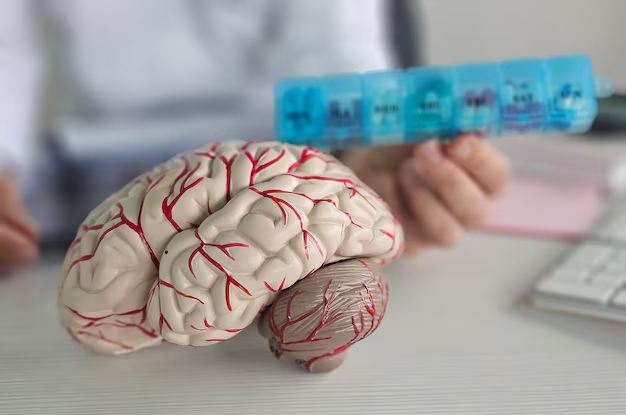Understanding the Impact of Parkinson's Disease on the Brain
Parkinson's disease is one of the most prevalent neurological disorders, affecting millions worldwide. But what part of the brain does Parkinson’s disease affect, and how does it impact daily life? In this article, we will explore the key areas of the brain compromised by Parkinson's disease as well as delve into related topics that offer a comprehensive understanding of this condition.
The Brain's Role in Parkinson's Disease
Parkinson's disease primarily affects the basal ganglia, a group of structures deep within the brain responsible for coordinating movement. Within the basal ganglia, the substantia nigra plays a critical role. This area is teeming with neurons that produce dopamine, a neurotransmitter essential for smooth and coordinated muscle movements. As Parkinson's disease progresses, these dopamine-producing neurons deteriorate, leading to the hallmark symptoms of the condition.
Substantia Nigra: The Core Trouble Spot
- Location: This part of the brain is situated in the midbrain, and it significantly influences motor control.
- Function: It regulates the release of dopamine, facilitating communication between neurons.
- Impact: Loss of dopamine results in the communication breakdown, contributing to motor symptoms like tremors, rigidity, and bradykinesia (slowed movement).
Symptoms and Manifestations
Understanding the primary site of dysfunction helps pinpoint why Parkinson's disease presents specific symptoms.
Motor Symptoms
- Tremors: Often the first recognizable symptom, tremors usually start in a limb, often the hand or fingers, even at rest.
- Rigidity: Stiffness in the muscles can occur, causing discomfort and limiting range of motion.
- Bradykinesia: Gradual slowness of movement impacts everyday tasks, making simple activities time-consuming.
- Postural Instability: Balance problems increase the risk of falls and related injuries.
Non-Motor Symptoms
Parkinson’s disease is more than just a movement disorder. The disease also affects non-motor functions due to its impact on various neural circuits.
- Mood Changes: Depression and anxiety are common, affecting overall quality of life.
- Cognitive Impairments: Memory problems and slowed thinking are often described by patients.
- Sleep Disturbances: Insomnia and REM sleep behavior disorder can occur.
- Autonomic Dysfunction: Issues such as constipation, blood pressure fluctuations, and bladder problems may arise.
Beyond the Substantia Nigra: Broader Brain Impacts
As the disease progresses, other parts of the brain can also be affected, compounding the symptoms and complexity of Parkinson's.
Thalamus and Cortex
- Thalamus: Plays a crucial role in motor and sensory signal relay; its involvement can influence tremor severity.
- Cortex: Responsible for higher-level brain functions; secondary effects can manifest as executive function deficits, impacting planning and organizing tasks.
Limbic System
- Role in Emotion: Changes here can lead to mood disturbances, further complicating the emotional and psychological impact of the disease.
Practical Insights: Coping and Management
While understanding the neurological underpinnings of Parkinson's provides clarity, it’s equally important to discuss how individuals and caregivers can manage this condition.
Lifestyle Adaptations
- Exercise Regularly: Physical activity helps maintain muscle strength, flexibility, and balance.
- Therapies: Physical, occupational, and speech therapies can be tailored to address specific symptoms and improve function.
- Diet and Nutrition: A balanced diet can help manage symptoms and support overall health.
Support Systems
- Caregiver Involvement: Creating a support network is crucial for both patients and caregivers. Having a community can provide emotional and practical support.
- Counseling and Therapy: Accessing mental health support can help manage depression and anxiety associated with the disease.
Medication and Treatment Avenues
Pharmacological treatments primarily aim to manage symptoms by addressing dopamine deficiencies.
Common Medications
- Levodopa: The most effective medication, essentially a precursor converted to dopamine in the brain.
- Dopamine Agonists: Mimic dopamine effects in the brain.
- MAO-B Inhibitors: Help prevent the breakdown of brain dopamine.
Advanced Therapies
- Deep Brain Stimulation (DBS): Surgical treatment involving brain implants that provide electrical impulses to modulate faulty circuits.
- Emerging Treatments: Research is ongoing into gene therapy and stem cell therapy to better address the disease's root causes.
Research and Future Directions
Innovation in the understanding and treatment of Parkinson's continues at a rapid pace. Researchers are exploring new frontiers to enhance quality of life and pursue potential cures.
Genetic Research
- Studies are examining the genetic underpinnings to identify potential targets for intervention.
Neuroprotective Strategies
- Approaches focused on protecting neuron health and slowing disease progression are in development.
Navigating Life with Parkinson’s Disease
While Parkinson's disease presents considerable challenges, understanding the brain’s role in this condition equips individuals and caregivers with knowledge and strategies for effective management. The progress in both symptomatic treatment and innovative research provides hope for a future where Parkinson's disease is more comprehensively understood and effectively treated.
Key Takeaways:
- 🧠 Parkinson's disease primarily affects the substantia nigra region of the brain, disrupting dopamine production and causing motor and non-motor symptoms.
- 💪 Regular exercise, a healthy diet, and various therapies can significantly benefit symptom management and overall well-being.
- 💊 Medications like Levodopa and experimental treatments like Deep Brain Stimulation are crucial in managing Parkinson's.
- 🌟 Building a strong support network and accessing mental health resources can provide essential emotional support.
Through continued research and a better understanding of Parkinson's disease, strides are being made toward more effective treatments and improved quality of life for those affected.

Related Articles
- Are There Environmental Causes Of Parkinsons
- Can Alcohol Cause Parkinson's
- Can Concussions Cause Parkinson's
- Can Females Get Parkinson Disease
- Can Head Trauma Cause Parkinson's
- Can Parkinson Disease Cause Dizziness
- Can Parkinson's Affect Eyesight
- Can Parkinson's Affect Memory
- Can Parkinson's Affect Speech
- Can Parkinson's Affect Vision
